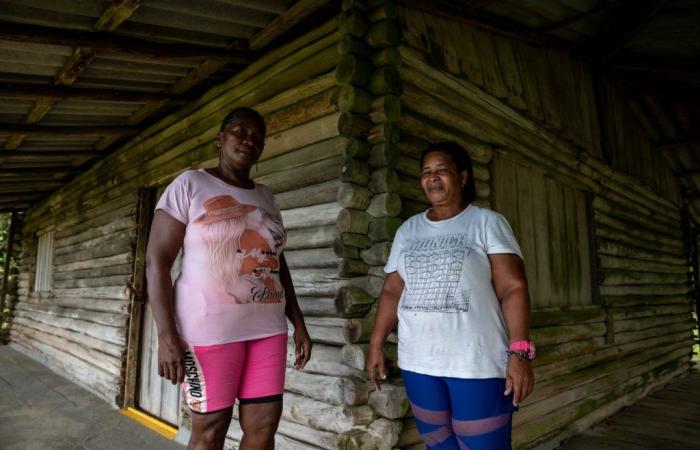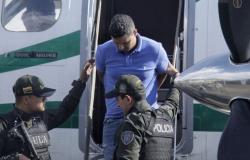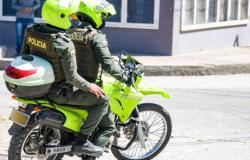“In Ébano, we women are life givers, we are conservationists, we are seasoners, we are culture, we are teachers, we are nurses and we are tourist advisors”Atanasia Gamboa, African leader of the Mujeres de Ébano Tourism Operating Agency.
By: Shirly Forero and Simon Zapata
The wind that drives the waves of the Pacific Ocean and caresses the beaches of Buenaventura is the same one that brings freshness to the daily lives of women who, after having experienced a past that marked them deeply, glimpse hopes of transformation. This is the story of the Ébano Women’s Association, a group that encapsulates an amalgam of memories, resilience and solidarity.
This story could not be told without Atanasia Gamboa. She is 50 years old and has dedicated herself to the fight for gender equality, especially through initiatives to promote access to decent jobs for women who have been victims of gender-based violence.
She speaks firmly and openly, sometimes slowly, with a distressing attachment to her territory due to the exclusion they have suffered, not only for being women, but also for being Afro. Even so, she has taken enormous steps to guarantee the emancipation of a patriarchy that is slowly weakening. The straw that broke the camel’s back was the case of Camilita, a girl who was attacked by her partner “with fists and machetes” in the early hours of the morning. The perpetrator was arrested and held in a cell. But around 3:00 pm, he was seen with his victim, with a stitch in her head, walking hand in hand.
The fear of ending up like Gloria
“Look at her, freshly machete-ed and holding her man close,” they told her. Atanasia could only think of how that girl who hours before had been on the verge of losing her life with a machete held by the companion who was now holding her hand must have felt.
According to the research “Barriers to reporting and escaping situations of gender-based violence in Latin American women: A qualitative study”, there are several factors that determine the fact that a woman stays with her partner despite being a victim of gender-based violence: economic dependence, cultural and social norms, fear of retaliation, lack of institutional support and psychological aspects such as fear of the future and emotional attachment to the aggressor.
Amidst the horror that emerged from the salty air, two femicides shook the community and increased the fear of women. One of the victims was called Gloria, a name that men began to use to threaten their partners. “Do you want what happened to Gloria to happen to you?” or “Don’t talk to me like that or you’ll end up with what happened to Gloria,” they would say.
Perhaps it was because of the desire to no longer feel afraid that on an afternoon with friends on the seashore the idea of Ebony Women germinated. Like the ebony tree, resistant, rooted in the earth, instead of a trunk as a base, they are pillars of strength and wisdom, guardians of traditions, symbols of dignity and harmony.
With each graceful step they take, echoes of struggle and hope resonate. But such a plan would take a little longer to materialize. Along with Atanasia, nine women entered the fray. “Girls, what happened to them could happen to any of us,” she told them. “Either we unite and seek help, or we prepare to go to those extremes.” It was them against aggressive colleagues, a society that normalizes machismo, and a police force that did not have a gender perspective.
Buenaventura, in Valle del Cauca, is populated mostly by Afro-descendant women, and many other indigenous women, who reside in marginalized areas, suffer a considerable burden of discrimination, which is added to gender-based forms of violence.
A year before the association was created, the Ombudsman’s Office published the report “Violence against women in the Buenaventura District” in which it showed that “various vulnerability factors determined by gender, ethnicity and social status intersect among women in Buenaventura.” More than a decade later, at the national level the figures are not very encouraging: every hour three women are victims in the country, 128 thousand a day and throughout 2022, 47 thousand suffered domestic violence during 2022 according to the Attorney General’s Office.
This is exacerbated by an internal armed conflict that has so far left more than nine million victims, and Buenaventura has been no exception. The municipality has one of the highest rates of violence and displacement due to the escalation of the conflict between illegal armed groups.
In the Final Report of the Commission for the Clarification of Truth, Coexistence and Non-Repetition, in the part titled “My body is the truth, experiences of women and LGBTIQ+ people in the armed conflict”, it is narrated that the armed actors exerted control “using women’s bodies as a site of conflict, spoils of war, a source of pleasure, entertainment or compensation; as a labor force, as a space to leave messages. In this way, they forced them to dissociate themselves from their bodies. They inscribed themselves on women’s bodies, marked them, violated them, destroyed them, stripped them of their humanity. Sexual violence was a form of control, punishment, slavery, an incentive and a reward for men for having risked their lives in battle.”
“Some of us knew that apart from the physical blow there were various kinds of violence and others did not, they thought that violence was only physical blows, so we said that we had to ask for help from the outside,” Atanasia concluded. Then they grouped together, but in order not to be discovered by their partners, they gave the excuse that they were going on an excursion. “There we were going to test finesse,” she remembers, because they agreed to try not to answer their classmates for 24 hours to see how they would react.
Many women agreed to the plan, but others were afraid of the reprisals they could receive. “No, I won’t go because I’m a dead woman” or “No, just by telling him that I’m not going to answer the phone, he’ll kill me,” they told them. They gathered funds through a raffle and went to Bocana, one of the most stunning beaches on the Colombian Pacific. There they had a pleasant experience, especially because many of them had never gone out on vacation. But one of them had a husband who said:
— You go, but you take your children.
— Oh, no, my son, but the budget is not enough for me.
—Here’s the thing about the little boys, he takes them, because if he’s going to sleep with his boy, he has to sleep with his children.
Without being able to oppose the control of their decisions and their freedom, there was no other solution than to also take the children. The role of mother involves a considerable workload, which includes taking care of the home, raising children and other unpaid domestic tasks. A job that is often devalued and that prevents them from having free time to rest, relax and dedicate themselves to activities that bring them personal satisfaction.
According to a report from the National Planning Department of Colombia, it is estimated that 20% of the country’s Gross Domestic Product -GDP comes from unpaid work, which includes domestic and care work. Furthermore, according to the National Time Use Survey carried out by the National Administrative Department of Statistics -DANE in 2018, Colombian women dedicate on average around 5.4 hours a day to domestic and care work, while men dedicate only around of 2.3 hours a day for these activities.
The empowerment that germinated
The sorority that was beginning to develop reached the ears of the men, who began to prohibit their partners from getting together with Atanasia. They were told that, because of her physical appearance, she looked like a lesbian, and such a discriminatory adjective led some to fear that society would also see them as having a different sexual orientation.
Atanasia didn’t care about that and dedicated herself to continuing looking for help. With determination, she brought together a group of 12 women and in 2018, now with 22 members, they developed a project to protect two water sources with the objective of preserving the Tapacula and Cinta Amarilla turtles in the community of Ladrilleros.
Within this project, the Flor del Duende trail was established, which in addition to providing economic support, promotes knowledge of natural wealth through ecotourism. This achievement was possible thanks to the support of the Small Grants Program of the Global Environment Facility – GEF, implemented by the United Nations Development Program – UNDP. In this way, the Association integrated tourism and environmental care as economic tools for women. They are guardians of the trail, they take care of it, reforest it, organize trips once a month where they prepare food and clean it with their daughters and sons.
In fact, Atanasia has a lot of SENA degrees accumulated for courses or techniques, but her desire was to complete an undergraduate degree, and, in the midst of that search, all she heard was that she was very old. But in an ancestral drinks course with the Escuela Taller Buenaventura, she found the beginning of her dream, since during the classes she met classmates who advised her to contact the Technological University of Mexico.
They answered her quickly, explaining that there the studies are done in two-month periods. “Oh, I told him, friend, thank you very much, I am from a vulnerable community. I am from Buenaventura, a rural area. I am part of a Community Council, I do not even have a salary. I feel like dying, even if it is with my card here on my chest,” Atanasia told the advisor, who decided to refer her to the dean, who, upon hearing her story, decided to help her obtain a 73% scholarship.
Although it is a substantially low price, getting the money has not been easy, added to the data plan that you pay to attend your virtual Ecotourism and sustainable development classes. Even so, she is stubborn and refuses to stop studying and contribute to a better future for her classmates.
It is not only Atanasia who is restlessly studying. The group has not stopped informing and educating itself about the implications of gender-based violence in a racial context. Last year, the Ebony Women participated in the Anti-Racist, Peaceful and Political School, organized by the Mariposa Network. As a result, many women stopped referring to themselves only as housewives, to proudly claim that they are tourism advisors. This space also included the participation of indigenous women and people of diverse sex and gender.
The services offered by Ebony Women
The women have adapted their houses “in such a beautiful and practical way,” says Atanasia, to receive those who want to do tourism in the municipality. “During the pandemic, everyone looked for a place to take refuge, so one of them behind the house has a sugar apple tree and she cleaned it there, raked it and put it as a recreation area for tourists,” says the leader, referring to to the adaptations that everyone made to receive the people.
The Ebony Women’s Association offers services accommodation in cabins with traditional wooden architecture, where you can watch birds and enjoy the natural environment, special cuisine with authentic dishes from the Pacific region and ecotourism tours where information is provided about native flora and fauna of the territory.
Among the experiences that people can live is the walk along the Elf Trail, Ladrilleros waterfalls, and the enjoyment of the attractions of the entire Malaga Bay and nighttime cultural activities. These women work on issues such as the preservation of their culture and traditions such as medicine and sustainable production.
Atanasia dreams that in her territory women can denounce the violence to which society subjects them and that they can consolidate tourist offers. That they can consolidate their tourism agency where they are valued and have a special connection with those who visit them. That children and adolescents from the territory be linked and their living conditions improved.
Read also: Youth from Meta and Guaviare seek greater political and social influence






